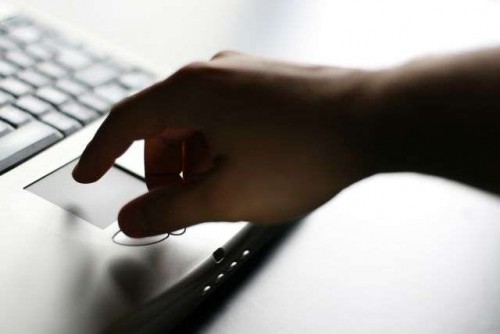 By Nishant Arora
By Nishant Arora
While young adults across several Western countries are feeling the ill-effects of excessive online porn, the sudden spurt in online access has also put Indian teenagers at such risk, warn behavioural experts.
According to sex and behavioural sciences experts, sex is one of those abiding mysteries to which teenagers seek an answer. Today it’s much easier to reach out for answers through the social media or the general web. But often the answers come in the form of pornography, say experts.
“I would blame the ignorance regarding sex more than on any other factor. People need to learn first what healthy love-making is all about. Porn is, however, a mixed bag,” Dr Sudhakar Krishnamurti, director of Andromeda Andrology Centre in Hyderabad, said over phone.
He is known to be the first Indian doctor to exclusively practise clinical andrology, the branch of medicine that deals with disorders of the male reproductive system.
“An educated man or woman will treat porn not just as a tool for carnal pleasure but for enhancing the overall experience of being together. This is not the case with teenagers who watch it for fun and get trapped,” says Dr Krishnamurti.
The fear is that easy online porn access may predispose many young people towards risky sexual behaviours, especially in a country which, at 356 million, has the world’s largest youth population.
Excessive porn viewing may also lead to problems later in married life. Dr Samir Parikh, director of mental health and behavioural sciences at Fortis Hospital in New Delhi, is dealing with several young adults whose marriages have been affected by porn.
One such case is of Sumit Agarwal (name changed). A 26-year old married man, he would watch pornography for three to seven hours every day.
According to the doctor, initially, the couple felt intimate. But over time, Sumit began spending more time away from his wife watching porn alone.
“Differences between his wife and him began to grow. Apart from the effect on their sexual relationship, his wife found an emotional distancing, resulting from a lack of intimacy and unrealistic expectations from the relationships,” Parikh said.
According to India’s leading sexologist Dr Prakash Kothari, “porn addiction depends on an individual’s personality where the desire is uncontrollable; the need is unquenchable and the behaviour is compulsive”.
When a young individual reaches this stage, immediate treatment is required because the basic pathology is present in the mind itself, he adds.
Dr Sameer Malhotra, Director of the department of mental health and behavioural sciences at Max Super Speciality Hospital in New Delhi, agrees: “Excessive porn viewing could be reflective of compulsive trait/behaviour in an individual”.
He recently treated a young couple where the husband had a compulsive need to watch porn clips for arousal, making his wife feel inferior. Consequently, the sex act, for her, was mechanical.
“This led to significant marital conflict in their relationship. With treatment, the man has significantly improved and the marital bond has grown stronger,” Dr Malhotra said.
Of late, Dr Manish Jain, senior consultant (psychiatrist) at BLK Super Speciality Hospital in New Delhi, has also been witnessing many such cases.
A young marketing professional visited him with complaints of violent obsessive behaviour and low energy levels. During a psychotherapy session for the couple, the wife revealed that he would try unnatural ways of sexual intercourse with her. He would force her to see and replicate what was being shown in pornographic movies.
“Overall, the frequency of intercourse decreased to about once a month,” Dr Jain said.
Experts believe that sex education for schoolgoing children may be an answer to avoid obsessive behaviour with porn later in life.
“Children need to learn to critically evaluate whatever messages they receive, understand the motives and, most importantly, distinguish what is real from fiction,” stresses Dr Parikh.
“Age appropriate and sensitively handled sex education can help in preventing risky behaviour, addressing myths associated with sexual issues,” Dr Malhotra emphasises.
Parental guidance of age-appropriate surfing may also help, they say.
Recently, a leading sexologist in Denmark called for pornography to be shown in the classroom. According to professor Christian Graugaard of Aalborg University, it can help teenagers become “conscientious and critical consumers” who are able to tell the difference between pornography and the reality of sexual relationships, the Guardian had reported.
That may seem a bit extreme for Indian parents, but appropriate sex education may sift the myth of exaggerated ability that porn projects from healthy sex that everyone can enjoy.